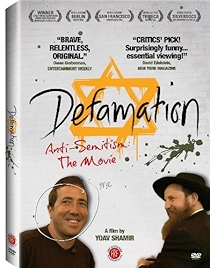A movie for every day of the year – a good one
25 June
Anne Frank’s Diary published, 1947
On this day in 1947, a book originally called Het Achterhuis. Dagboekbrieven 14 Juni 1942 – 1 Augustus 1944 (The Annex: Diary Notes 14 June 1942 – 1 August 1944) was published by Contact publishing in Amsterdam. The annex being the place where the 13-year-old Jew Anne Frank and her family, along with another Jewish family called the Pels, hid in order to avoid arrest by the Nazis. The annex was in the upper, hidden rooms of Anne’s father’s business premises and the family hid there from 6 July 1942 until their discovery and arrest in early August 1944. Written as a series of letters to friends, the diary ranges wide, covering Anne’s thoughts about humanity (optimistic), her feelings about her family (claustrophobic), even, in the later unexpurgated version, Anne’s feelings about sex and love, these sections causing the book to be banned in some parts of the world where honesty is not prized as highly as chastity. Anne started writing the journal as a personal diary, but redrafted it from April 1944 onwards, clearly with the intention of having it published some day. It was published, and became a literary sensation, though Anne had perished of typhus in the Bergen-Belsen concentration camp in early March 1945, only weeks before the camp was liberated.
Defamation (2009, dir: Yoav Shamir)
Are the Jews overdoing the Holocaust? That’s an uncomfortable question to ask, in the light of what’s happened to them, and of the continuing eruptions of anti-Semitism in the world. Yoav Shamir’s revelatory documentary asks the question though. And thank god Yoav is a Jew, because otherwise the question could barely be asked. Setting out to dig a little, wondering why his generation of Israeli kids were taught barely anything about the Holocaust (he’s 29 when the film is being made) whereas young Israelis of today get plenty of it, Shamir’s first interesting observation is that, in schools at least, anti-Semitism has become part of the “chosen people” narrative (ie “they don’t like us because we’re chosen”). If this is true, it’s worrying, but the eyes open wider as Shamir accompanies an Israeli school trip to Poland, the kids flanked by secret service minders, the teachers feeding them with stories (“stay in your rooms, there are neo-Nazis on the streets”) that stoke the fire.
He then moves his focus more internationally, to the Anti-Defamation League. Headquartered in New York and with an annual budget running into millions of dollars, it’s an organisation whose remit is to work against anti-Semitism. Shamir buries himself almost Sacha Baron Cohen style inside the ADL, and then observes its work from the inside, noting that as with any organisation with a healthy bank balance, there are good people there for the right reasons, a lot of freeloaders, a few wrong’uns, and a number of what you might call the well intentioned but bewildered. In which camp does Shamir put the ADL’s boss, the sleek Abraham Foxman? Foxman is clearly a brilliant negotiator, a fiery and principled advocate but is he also guilty of feeding the myth of anti-Semitism in order to justify his paycheck? And Shamir’s digging seems to reveal not an organisation tireless in its endeavours to make the world a more peaceful place, but one ready to blow the tiniest spark of perceived anti-Semitism into a brush fire. Behold: the quango is fruitful and multiplies.
Meanwhile, on a wider, more contextual scale, Shamir talks to wise rabbis whose long view of history gives them a level headed attitude – anti-Semitism means nothing to practising Jews, opines one, it’s the secular Jews who are obsessed by it, possibly because they use it as some kind of cultural surrogate for faith.
Shamir isn’t the greatest interviewer – his tendency to ask closed questions is infuriating – but his access is astonishing. And his attitude is refreshing in all the debates about modern day Jewry (to use a word that seems to have slid from use). He points out that people of his generation understand entirely the distinction between being an Israeli, a Jew, a Semite and a Zionist, that the four are not the same, no matter how much the angry brigade who wheel out the ad hominem “self-hating Jew” argument against anti-Zionists insist the overlaps are more significant than the spaces between.
If, like Shamir, you want to live in a slightly more robust world where every tiny suggestion of a racial slur isn’t seen as the beginning of the slide towards the concentration camps, you’ll welcome this film. It’s also a revelatory look inside Israeli society, where the Jew/Israeli/Semite/Zionist debate is clearly more alive than those of us who live outside are given to believe, and a fascinating insight into the tendency for lobbies to self-perpetuate. I doubt it made Shamir many friends in high places.
Why Watch?
- A fascinating documentary
- Shamir’s brilliant access
- It’s not trying to catch anyone out, asks honest questions
- Talks to those who are anti the Israeli lobby too
Defamation – Watch it now at Amazon
I am an Amazon affiliate
© Steve Morrissey 2014

